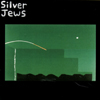
For his first album without founding band mate Stephen Malkmus, David Berman opted to abandon the band’s signature drawling slacker-rock for something totally different: stripped-down and drawling slacker-country. Given that the best things about the Jews have always been Berman’s singularly excellent lyrics and endearingly deadpan delivery, increased intimacy could not be anything other than a great idea (especially since these are some of Silver Jews' most dark and personal songs). The Natural Bridge is David Berman's Nebraska.
 
Like many people, I was first introduced to Silver Jews in a very misleading way: I was working at a college radio station in 1996 and one of my fellow DJs excitedly told me that we had just received a great new album by "a Pavement side-project."I was never a huge fan (though Pavement certainly has a ramshackle charm), so I was pleasantly surprised that The Natural Bridge did not sound anything like them and actually did not feature anyone from that band at all.Still, I wasn’t especially impressed with the first song I heard ("Pet Politics") until I realized that lines from it still kept popping into my head a week later.I gave it another chance and it has been a constant fixture in my life ever since.
As a lyricist, David Berman is in a class by himself, by turns evocative, profound, moving, and witty.Even his weakest material tends to be peppered with mysterious allusions, inspired imagery, and clever turns of phrase, but The Natural Bridge is probably his most powerful and consistent single work.Here, Berman’s considerable talent at wielding the English language is met halfway by a distinctly non-cerebral sense of palpable heartbreak and longing.I have no idea what the personal circumstances surrounding this album were, but it seems very unambiguously like a wounded man trying to forge meaningful art from the broken shards of a love affair gone devastatingly wrong.Still, while this is ostensibly a "break-up album," the songs here don’t sound like Berman is self-indulgently wallowing in his pain at all. Instead, the album feels like a long, laid-back conversation with an old friend who has been to hell and back, but has nothing but insightful, wise, and wryly amusing things to say about it all ("well I wish they didn’t set mirrors behind the bar, cuz I can’t stand to look at my face when I don’t know where you are").
The entire album is consistently compelling and littered with wonderful moments (aside from one throw-away instrumental), but I vastly prefer its first half.The opening track ("How to Rent a Room") has been a favorite of mine and it is very hard to write about it without resorting to breathlessly quoting all of its best lines.It’s the most explicitly relationship-themed song on the album and achieves the perfect mixture of heartbreak, abstraction, and gorgeously haunting imagery, telling its story with a flood of fleeting impressions ("your laughter made me nervous, it made your body shake too hard"). The following two songs ("Pet Politics" and "Black and Brown Blues") are equally stunning, but much stranger lyrically.In fact, "Pet Politics" never ceases to fascinate me, as it is the most bluntly powerful song on the album despite some singularly inscrutable and disjointed content.David sounds almost like a Doomsday prophet of Old Testament power at times, somehow imbuing lines like "When the rain hits you, it hits you slow" with startling depth and finality.
Berman’s backing band this time around consists of fellow Virginians New Radiant Storm King and Drag City producer Rian Murphy and they make an odd, but perfect foil.The music is bare-bones simple in a way that almost borders on naïve for some tracks, just the most straightforward chord progressions possible being strummed in the most straightforward way with almost no frills.Despite that, the band manages to turn the mundane raw material into something spacious, understated and unobtrusive yet still agreeably loose-limbed and swinging.It’s like a very unprepossessing frame that turns out to be the only one that can truly bring out the picture’s best qualities: Berman has never sounded this relaxed or focused, before or since.His more indie rock-themed albums certainly offer more in the way of immediate hooks, but the rustic, lived-in feel of The Natural Bridge has far more staying power.Aside from the obvious aesthetic dissonance of cloaking great songs in mediocre, of-the-moment rock, David has a tendency to get a bit hammy when things get a bit too rocking.
While this album thankfully is not dogged by an over-the-top delivery, it is not immune to Berman's occasional propensity for head-scratching non-sequiturs that wildly miss the mark (particularly its second half).Whether this is charming or insufferably pretentious is in the ear of the beholder, but I personally find his go-for-broke willingness to toss out horrible lines like "is it true your analyst was a place-kicker for the Falcons?" or "a new girl in Tahoe has swallowed Sinatra’s cum" endearing.Also, some of his bizarre one-liners can sound incredibly profound despite (or perhaps, because of) their seeming disconnection from the words around them (like "when I go downtown, I always wear a corduroy suit, cuz its made of a hundred gutters that the rain run right through").David Berman, more than just about anyone, understands that beauty and emotional resonance sometimes need to be approached in very oblique and unexpected ways.In fact, one of the best songs on the album, "The Frontier Index," is composed entirely of disconnected couplets ranging from bad jokes to bumper sticker slogans.The song ends, however, with Berman's earnest pronouncement that that he just wants to say something true.Whether he feels he succeeded is something that only he knows (probably not, since he attempted suicide by crack a few years later), but The Natural Bridge is moving and mysterious enough to at least convincingly feel like he did.
Samples:
 
Read More

